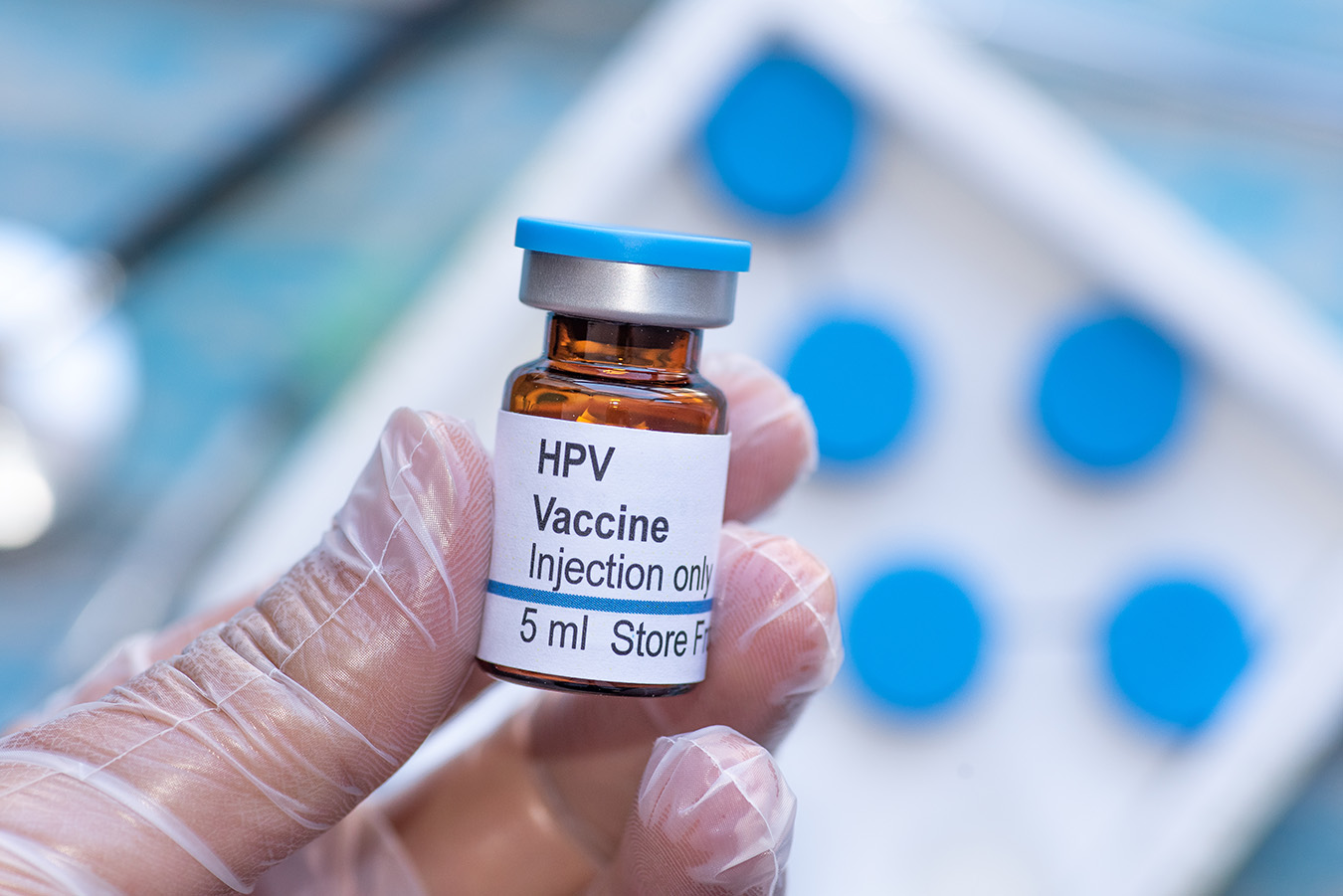Cervical Cancer: Detection and Prevention Efforts Save Lives

Cervical cancer used to be one of the most common causes of cancer deaths among American women.
In 2022, an estimated 14,100 cases of invasive cervical cancer will be diagnosed, and about 4,280 women will die from this disease. These numbers reflect significant improvements in the prevention and early detection of cervical cancer in recent years — thanks to the HPV vaccine, regular pap smears, and advances in cancer treatments.
But, a recent uptick in cases of late-stage cervical cancer is alarming. While Black and Hispanic women are disproportionately affected by cervical cancer overall, this 4.5% annual increase in stage 4 cases is most notable among white women in the southern U.S., ages 40 to 44.
What’s behind this increased risk?
White women are two times less likely to get regular pap smears and get tested for human papillomavirus (HPV). But white teenagers are the least likely to get vaccinated against HPV.
The relationship between HPV and cancer
There are over 100 strains of HPV, which are spread from skin-to-skin contact.
Most people with HPV don’t experience any symptoms and their immune system clears the virus. There is no way to know who will not be able to clear the virus and at risk for HPV-related cancers.
Some people develop warts in the affected area. There is currently no available treatment or cure for HPV infection.
Over time, some HPV strains can trigger the inflammation that causes cervical cancer in 90% of cases. HPV infection can also cause other forms of cancer in both women and men, including the vulva, vagina, penis, anus, throat, base of the tongue, and tonsils.
How to protect yourself and your child
HPV vaccine
The HPV vaccine has shown to be highly effective in preventing this viral cancers later in life. Because men at highest risk for developing head-and-neck-associated HPV cancers and can spread HPV to their sexual partners, it’s equally important for boys and young men to get vaccinated against HPV to protect themselves and their future partners.
To be most effective, the HPV vaccine (Gardasil in the U.S.) should be given to girls and boys between 9 to 12 years. Before age 13, children should get two doses of the vaccine 6 to 12 months apart.
Those who get the first shot after their 15th birthday need three doses, given over six months, to be fully covered.
Following a conversation with your doctor and testing, you may choose to get vaccinated between the ages of 27 and 45, based on your unique risk factors. HPV vaccination is not generally recommended for those older than age 26 because the majority of people have been exposed to the virus by this age. Talk to your doctor to learn more about your risk based on your genetics and sexual activity.
HPV screening
When was your last pap smear? Pap smear tests are highly recommended to detect abnormal cells in the cervix. This is the first line of screening for HPV infection, though additional testing may be needed to confirm HPV infection.
Speak to your primary care physician or gynecologist about how often you or your daughter should get a pelvic exam with cervical swab testing. Recommendations are based on your age, medical history, and sexual activity.
There is currently no test for HPV in men and teenage boys.
Sexual protection
Nearly all sexually active people are exposed to HPV at some point in their lifetime. The majority of those who are unvaccinated for the virus get infected.
Using a condom or dental dam every time you have sex can reduce your chances of getting HPV from your partner(s), even in sexually monogamous relationships. But, all intimate skin-to-skin contact still carries some risk of spreading and catching HPV.
In 2021, the U.S. Food and Drug Association approved two new anti-cancer drugs to treat women with cervical cancer.
Targeted therapy and immunotherapy drugs are different than chemotherapy, with different side effects.
Pembrolizumab, an immunotherapy agent, is approved for use in combination with chemotherapy and bevacizumab for patients with specific types of persistent, recurrent, or metastatic cervical cancer. And tisotumab vedotin, an antibody drug conjugate, is approved for patients with recurrent or metastatic cervical cancer.
Targeted therapies, such as anti-angiogenesis medications like bevacizumab, target specific receptors, preventing new blood vessel formation.
Additionally, novel targeted therapies are currently being developed and studied in clinical trials to confirm their safety and effectiveness in treating cervical cancer.
New vaccine therapies are also being designed to produce an immune reaction in women with advanced cervical cancer. These vaccines have the potential to kill cancer cells or stop them from growing.
Dana Kantrowitz is a contributing writer for UMiami Health News. Medically reviewed by Marilyn Huang, M.D., a gynecologic oncologist and director of Sylvester’s Translational Gynecologic Oncology Research.
The World Health Organization announced that Sylvester Comprehensive Cancer Center is the first-of-its-kind collaborating center for cervical cancer elimination.
Learn more
Originally published on: January 03, 2022
Tags: cervical cancer, cervical cancer awareess, HPV and cervical cancer, HPV vaccine, human papillomavirus, late-stage cervical cancer, targeted therapy
